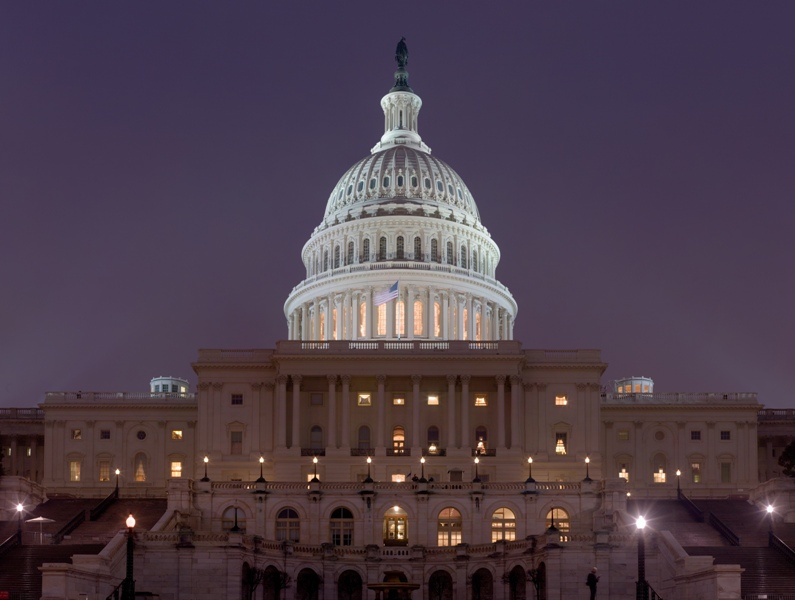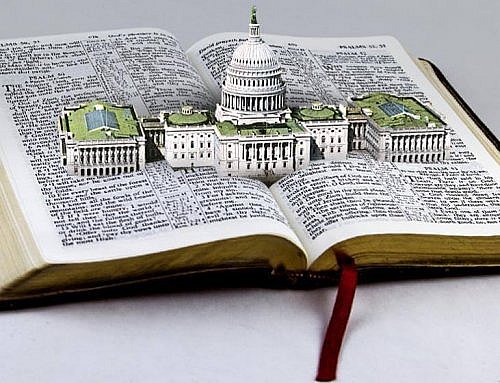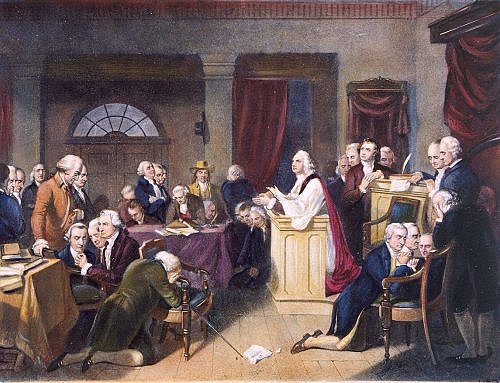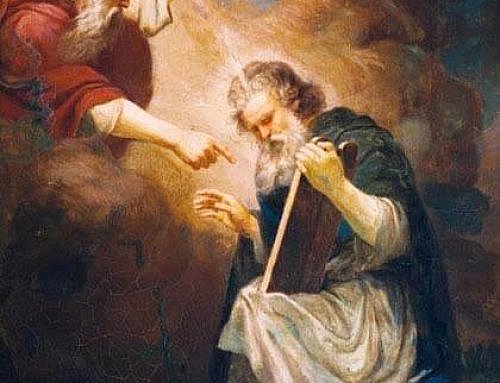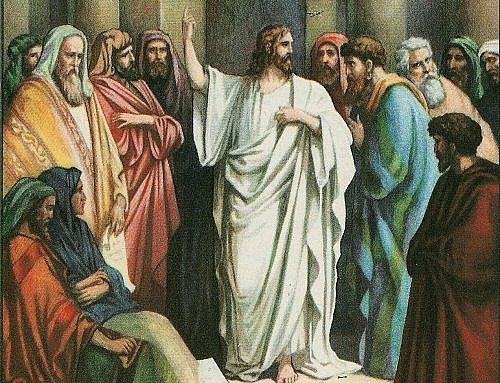For PDF Version: The Shutdown of (Self-) Government
By Stephen McDowell
America recently experienced a government shutdown. As is typical, the major media blamed the shutdown on right-wing extremists, though they failed to mention that the desire of these limited government Constitutionalists was to check an irresponsible, out-of-control government that is bankrupting our nation and saddling future generations with mounds of debt. The average unthinking American, who has received in recent decades an ever-increasing secular socialistic education in government schools, went along with the mainstream mantra.
While many pundits propounded reasons for the shutdown, the principal reason was not addressed. The failure of civil government in America is a result of the decline of self-government in the American people.
For a nation to be free, the people must be self-governed. The founder of Pennsylvania, William Penn, explained the nature of civil government in the Preface to the Frame of Government of Pennsylvania:
Governments, like clocks, go from the motion men give them; and as governments are made and moved by men, so by them they are ruined too. Wherefore governments rather depend upon men, than men upon governments. Let men be good, and the government cannot be bad; if it will be ill, they will cure it….
Some say, let us have good laws, and no matter for the men who execute them: but let them consider, that though good laws do well, good men do better: for good laws may want good men, and be abolished or evaded by ill men; but good men will never want good laws, nor suffer ill ones. It is true, good laws have some awe upon ill ministers, but that is where they have not power to escape or abolish them, and the people are generally wise and good: but a loose and depraved people love laws and an administration like themselves. That, therefore, which makes a good constitution, must keep it, viz: men of wisdom and virtue, qualities, that because they descend not with worldly inheritances, must be carefully propagated by a virtuous education of youth.[1]
Our nation was built upon several fundamental principles that are rooted in the Christian faith, and without these principles residing in the American people we cannot remain free, just, and prosperous for long. Self-government is one of these principles of liberty.
What Is Self-Government?
When people hear the word government they usually think of civil government, for in most nations that is the ultimate government. In a general sense, government means direction, regulation, control, restraint. There are many spheres of government with each providing direction, regulation, control, and restraint in its jurisdiction. The spheres of government can be divided into internal and external government. Another name for internal government is self-government. All government begins internally in the heart of man, with his ability to govern his conscience, will, character, thoughts, ideas, motives, convictions, attitudes, and desires. How a man governs himself internally affects his external actions, speech, conduct, use of property, etc. Each external sphere of government is a reflection of the internal sphere. In other words, the internal is causative to the external. The type of government that exists in the homes, churches, schools, businesses, associations, or civil realms of a country is a reflection of the self-government, or lack of self-government, within the citizens. The following diagram depicts this idea of government.
The seventeenth century Dutch scholar, Hugo Grotius, who systematized the subject of the law of nations, summarized the principle of self-government, writing:
He knows not how to rule a kingdom, that cannot manage a Province; nor can he wield a Province, that cannot order a City; nor he order a City, that knows not how to regulate a Village; nor he a Village, that cannot guide a Family; nor can that man Govern well a Family that knows not how to Govern himself; neither can any Govern himself unless his reason be Lord, Will and Appetite her Vassals; nor can Reason rule unless herself be ruled by God, and (wholly) be obedient to Him.[2]
Stated another way, you must rule yourself before you can rule others. The Bible teaches that rulers must be self-governed. One quality of a church leader was that he “manages his own household well, keeping his children under control with all dignity (but if a man does not know how to manage his own household, how will he take care of the church of God?)” (1 Timothy 3:4-5).
There are many civil government leaders today who are attempting to govern their nation, yet are unable to effectively direct and control their own lives or their families. These men and women should be replaced by those who can rule their own lives. Those who are self-governed are the ones with real power according to the Bible: “He who is slow to anger is better than the mighty, and he who rules his spirit, than he who captures a city” (Proverbs 16:32).
Grotius’ statement reveals how the flow of power should occur within a country, from the internal to the external. He speaks of decentralized governmental units wielding less power the further removed they are from the individual. The following chart summarizes his ideas:
Effective government begins by an individual learning to govern himself. The more internal self-government a person possesses the less external government he needs. Consequently, the more rules and laws required to keep people acting rightly is a revelation of a diminishing amount of self-government.[3] History teaches that man can control himself, but only to a limited degree. Since self-government cannot be imposed externally, and man is limited in personal self-discipline, there must be another source for internal control. Grotius reveals that man can only be truly self-governed if his reason, will, and appetite are ruled by God. The basis of self-control is obedience to the Creator and His standards of conduct found in the Bible. Robert C. Winthrop, speaker of the U.S. House of Representatives from 1847-49, said in 1849:
All societies of men must be governed in some way or other. The less they may have of stringent State Government, the more they must have of individual self-government. The less they rely on public law or physical force, the more they must rely on private moral restraint. Men, in a word, must necessarily be controlled either by a power within them, or by a power without them; either by the Word of God, or by the strong arm of man; either by the Bible or the bayonet.[4]
Winthrop summarized well the operation of government in the earth for all men and nations throughout all history: all men will be governed, ultimately “either by the Word of God, or by the strong arm of man; either by the Bible or the bayonet.”
Self-government is limited apart from God; therefore, the ability to govern well is limited where the people and leaders do not seek to govern themselves and their nation under God. George Washington said, “It is impossible to govern the universe without the aid of a Supreme Being.”[5]
The foundation for self-government is laid in the families of a nation. Noah Webster wrote in A Manual of Useful Studies:
In the family are formed the elements of civil government; the family discipline is the model of all social order; . . . the respect for the law and the magistrate begins in the respect for parents. . . . Families are the nurseries of good and bad citizens. The parent who neglects to restrain and govern his child, or who, by his example, corrupts him, is the enemy of the community to which he belongs; the parent who instructs his child in good principles, and subjects him to correct discipline, is the guardian angel of his child, and the best benefactor of society.[6]
As people in a nation become less self-governed, and give up power, the civil government (especially the national government) will grow and grow, making more and more laws (many outside its realm of jurisdiction) and spending more and more money. Lack of self-government leads to greater centralized external government which results in loss of individual liberty.
The problems and failures of our civil government are due to the declining ability of individuals to properly direct their own affairs, which has arisen as families, churches, and schools have abandoned their Biblical duty. The solution rests with the family, and other educational institutions, implanting within Americans self-government and other vital Christian principles.
[To learn of other foundational principles of free nations see our books Building Godly Nations and Liberating the Nations, or enroll in our Biblical Worldview University course, “Fundamentals for Biblical Transformation.” You can also listen to our podcasts on “Seven Fundamental Principles of Free Nations.”]
End Notes
[1] Frame of Government of Pennsylvania, April 25, 1682, The Preface, in Sources of Our Liberties, Richard L. Perry, editor, New York: American Bar Foundation, 1952, pp. 210-211.
[2] Quoted in Rosalie J. Slater, Teaching and Learning America’s Christian History, San Francisco: Foundation for American Christian Education, 1980, p. 119.
[3] The complete civil code and set of laws affecting Americans today are so vast it would take about 25,000 years for one person to read them all (and who knows how many of those laws and policies each of us are violating). Secular man governs via an ever-increasing number of external laws, and he calls it liberty. God gives man ten general principles by which to live, writes His laws on man’s heart, and empowers him with the Holy Spirit to desire and be able to live by those principles. God’s way is true liberty.
[4] Robert C. Winthrop, “Address to Massachusetts Bible Society Meeting, May 28, 1849,” Addresses and Speeches on Various Occasions, Boston: Little, Brown & Co., 1852, p. 172.
[5] Maxims of Washington, compiled by John Frederick Schroeder, New York: D. Appleton & Co., 1854, p. 341.
[6] Noah Webster, A Manual of Useful Studies, New Haven: S. Babcock, 1839, pp. 77-78.

